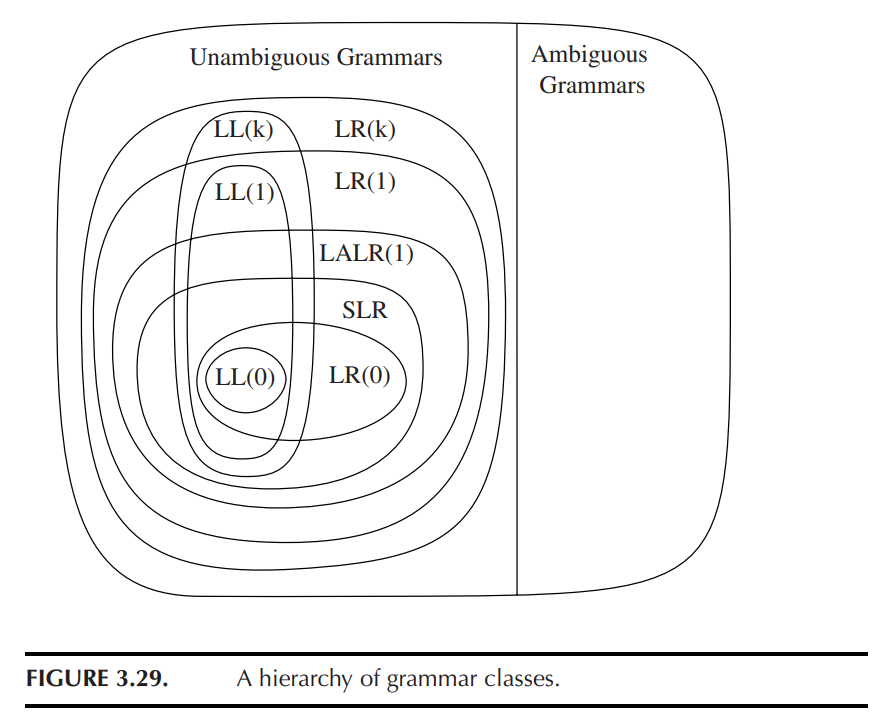语法分析(cont.)
Bottom-Up Parsing
reduce instead of derive
Shift-Reduce Parsing: a general style of bottom-up parsing
LR(0) Parsing
先列出 LR(0) item,再手搓 NFA,再转化为 DFA,就可以构造出 LR(0) Parsing Table
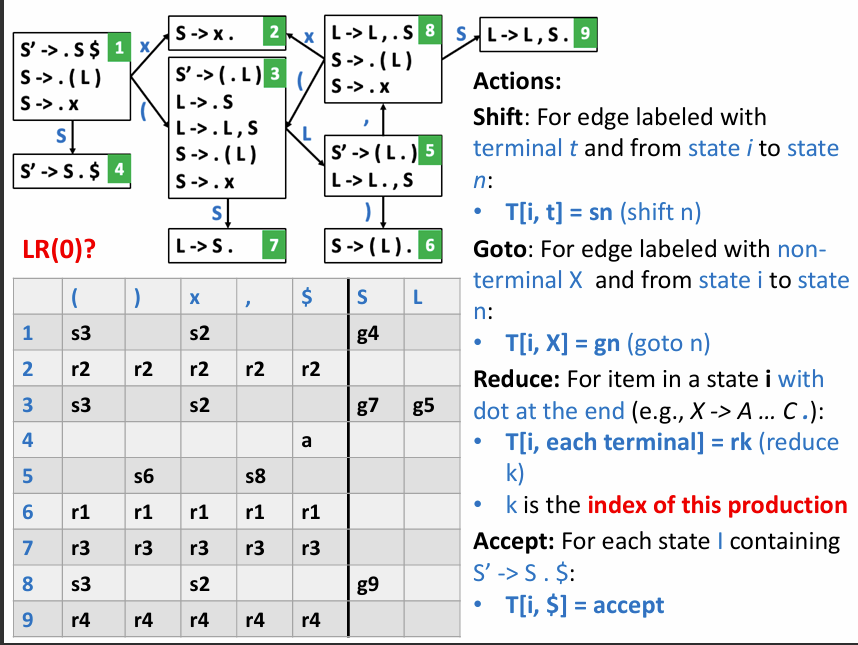
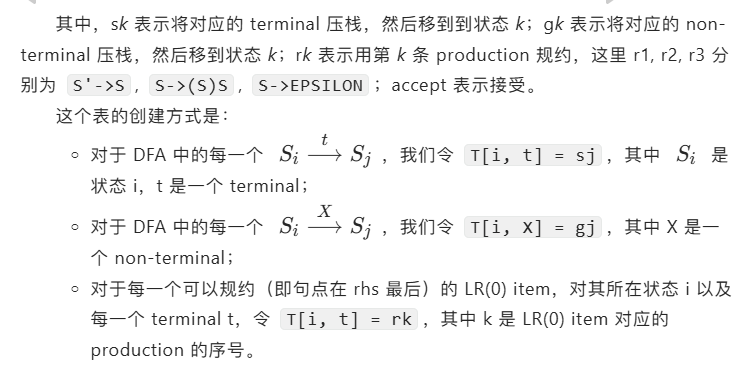
规约过程如下:
Chapter3-3.pdf 17 页例子,看 LR(0) 具体怎么运作的
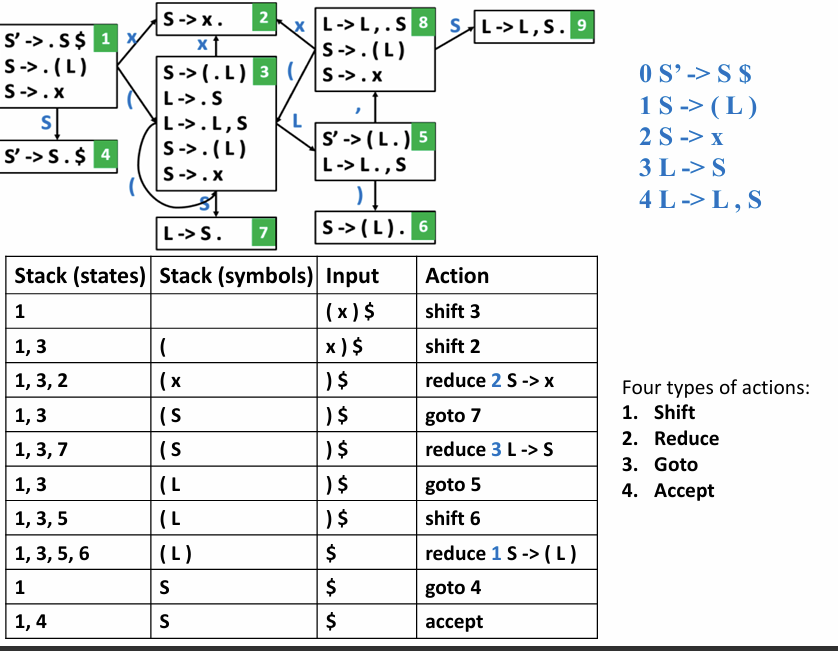
SLR(1) Parsing
Simple LR Parsing
Put reduce actions into the table only where indicated by the FOLLOW set.
先生成 LR(0) DFA,然后计算每一个 non-terminal 的 Follow Set
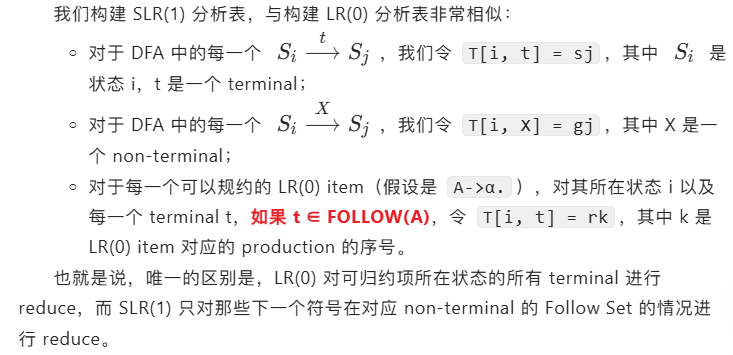
与 LR(0) 不同的是,SLR(1) 的 reduce 不再只与状态有关,我们需要提前观看下一个符号从而判断进行什么样的 shift 或 reduce 操作。
LR(1) Parsing
LR(1) parsing is more powerful than SLR parsing.
- LR(0): chooses shift or reduce only based on the current state
- SLR: chooses shift or reduce based on more information (whether the next token is in the specific Follow set)
- LR(1): add more information into the state of DFA
- Specify which terminal symbols can appear after the whole RHS of the production in certain context.
An LR(1) item consists of an LR(0) item and a lookahead symbol: (A → α.β, x)
一个 LR(1) Item 除了有 production 和 rhs position(用句点表示)以外,还有一个 lookahead symbol。

还是需要见构建 DFA
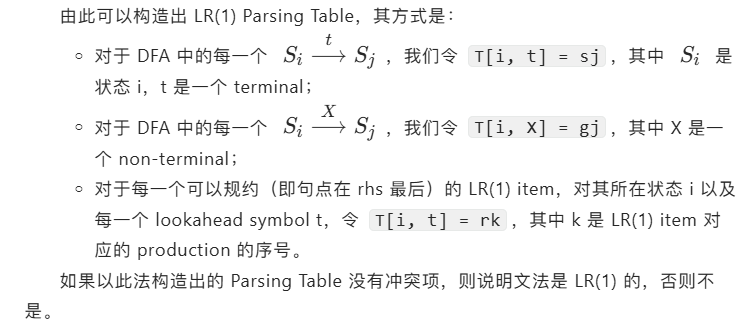
[!TIP]
可以发现 LR(0)-> SLR(1)-> LR(1),都是在致力于减少 reduce 导致的冲突项,以兼容更多的文法;第一者是直接无脑让所有终结符都标上 reduce,第二者改用了 FOLLOW,第三者则再细化到实际会出现的情况
LALR(1) parsing
LR(1) parsing tables can be very large, with many states.
LALR(1) parsing: merge any two states whose items are identical except for lookahead sets in the LR(1) parsing table
即,将产生式一样的、只是 lookahead symbol 不同的状态合并为一个状态,以此减少状态数
但是,这有时(虽然很少)也可能引入 reduce-reduce conflict

注意到合并后的状态 5&6,会存在 reduce-reduce conflict。这说明这个文法不是 LALR(1) 文法。
根据 DFA 可以构造 LALR(1) Parsing Table,其方法与 LR(1) 完全一致
同样地,如果构造出的 Parsing Table 没有冲突项,则说明文法是 LALR(1) 的,否则不是。
